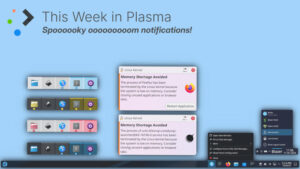Last updated on April 11, 2025
Initially developed for Oracle Linux, this version brings many useful enhancements to this open-source framework for in-place migrations.

For the second time this week, Leapp — Red Hat’s framework for in-place major version upgrades of Linux distributions — is in the news. Today, OpenELA announced that it’s created a branch of Leapp to make it easier for OpenELA-focused developers to collaborate.
On Sunday we reported that ELevate, AlmaLinux’s Leapp-based platform for easily migrating from one Enterprise Linux version to another, is in the testing stage as part of the preparation process for Red Hat’s upcoming release of RHEL 10, which will quickly prompt new releases from AlmaLinux, Rocky Linux, Oracle Linux, and the other RHEL clones.
Today’s OpenELA announcement included news that the organization has added a slew of enhancements to the platform, such as verifying kernel compatibility for enabled features, and identifying extra mandatory and suggested pre- and post-upgrade steps. OpenELA says the improvements will provide useful features for enterprise users, including built-in SELinux support, and support for upgrades with FIPS mode enabled.
Also added is enhanced support for configurations with network storage, and support for upgrades via kexec fast reboots – instead of requiring a full system reboot with hardware reinitialization. Kexec, a feature built into the Linux kernel, bypasses firmware initialization and bootloader stages, reducing reboot times by 75% to 80% compared to regular reboots.
“OpenELA aims to help enterprise customers navigate the challenges of upgrading their operating systems to modern versions,” Greg Marsden, senior vice president of Linux development at Oracle said in a statement. “Changes to core underlying frameworks like SELinux and systemd can impact upgrades, so it is important for customers to be able to upgrade their operating systems safely between major versions.”
In an email discussion with FOSS Force, Marsden pointed out that the code came to OpenELA by way of Oracle.
“The Leapp code contributed to OpenELA started as an upgrade mechanism specific for Oracle Linux users to move between distributions and versions,” Marsden told FOSS Force, “and we recognize the value of this work for all enterprise distributions.”
Oracle, along with SUSE and CIQ, is a co-founder of OpenELA, which was founded in 2023 in response to Red Hat placing restrictions on RHEL source code. Its primary purpose is to provide bug-for-bug compatible RHEL source code, which it makes available to the public.
When we asked benny Vasquez, the chairperson at AlmaLinux OS Foundation, for her thoughts, she said that the foundation has been working for a while to get OpenELA involved with its Leapp-based ELevate project.
“I’m glad to see them embracing the community a bit more, even if it isn’t by contributing to ELevate,” she said. “Anything that makes things easier for admins is good, but having to know which tool to use when could be confusing in the future. I’m hoping we will see them contributing to ELevate in short order, so we can keep the tool stack consolidated.”
In response to a question we asked about how ELevate fit into OpenELA’s picture, Marsden said, “Both OpenELA Leapp and Alma ELevate have their own unique features. We’re planning to review and add features from ELevate to the OpenELA Leapp repository as well.”
We also talked with Joao Correia, a technical evangelist at TuxCare, a subsidiary of AlmaLinux’s founding company, CloudLinux.
“This is a good example of how far the ecosystem has evolved,” he said. “The default stance on CentOS migrations or upgrades a few years back was, ‘You don’t upgrade. You copy data, reinstall, and copy data back.’ The person offering that nugget of worthless advice was obviously excluding the minor detail of ‘configuring all the application stack again, testing the system to find out what breaks with the new version, and good luck finding that old package version you now really need and isn’t available.’ It wasn’t funny, but we made do.”
For its part, OpenELA says it’ll “continue to explore additional use cases and enhancements for the manageability of OpenELA-compatible distributions.”
Editor’s note: This article was updated to include additional input from Oracle’s Greg Marsden.
Christine Hall has been a journalist since 1971. In 2001, she began writing a weekly consumer computer column and started covering Linux and FOSS in 2002 after making the switch to GNU/Linux. Follow her on Twitter: @BrideOfLinux






